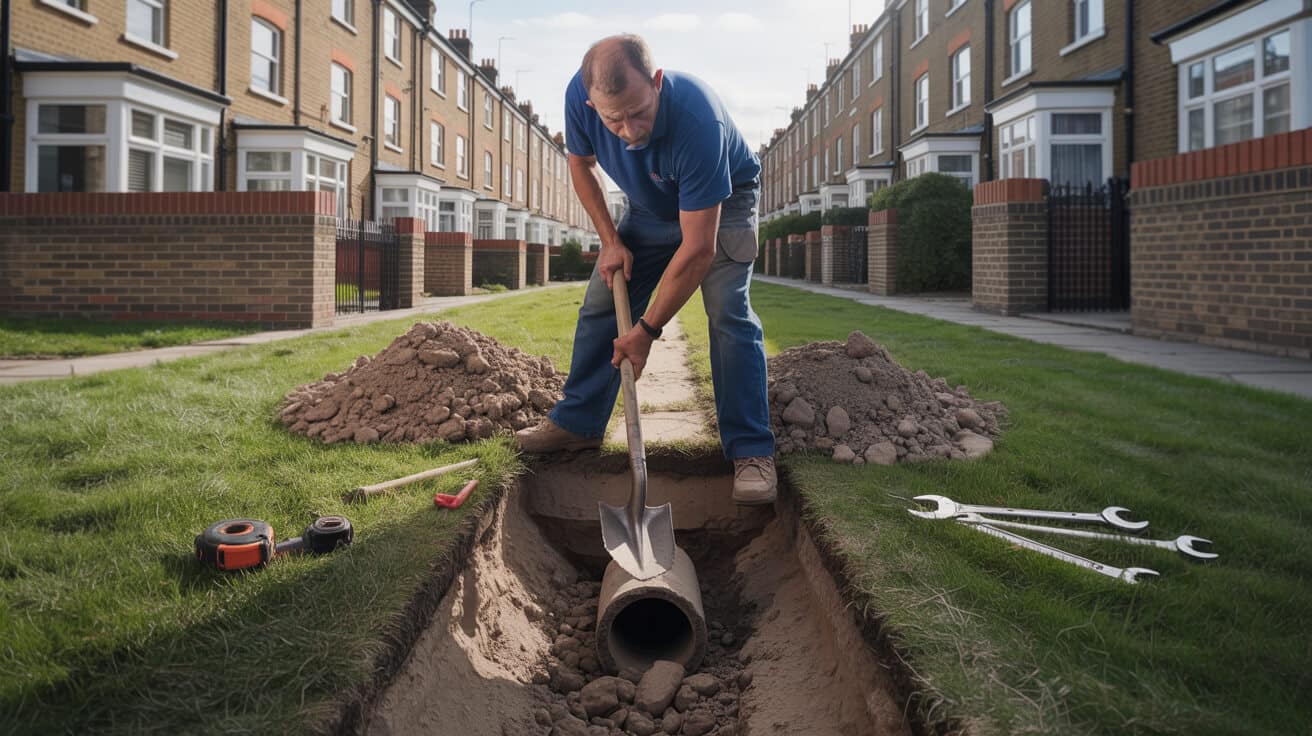 Can Tenants Demand Energy Efficient Heating
Can Tenants Demand Energy Efficient Heating
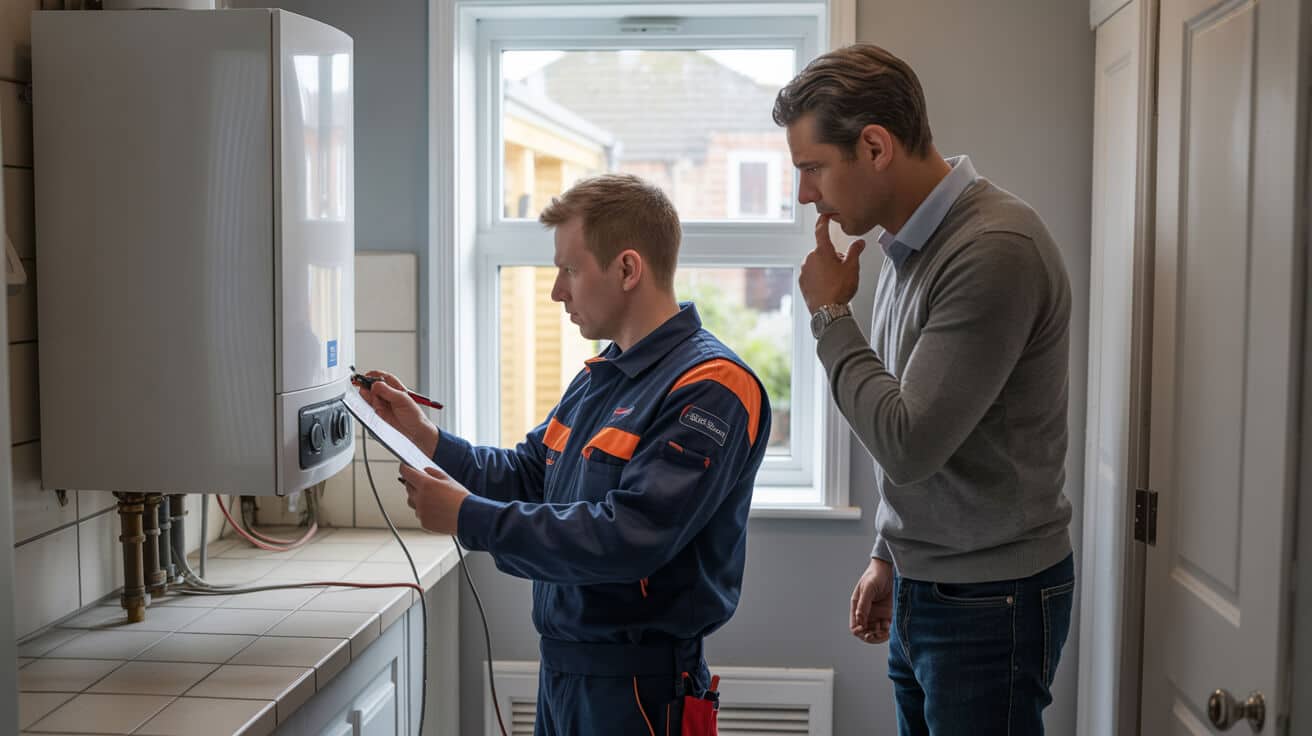
Are Tenants Entitled to Energy-Efficient Heating—Or Is Function Enough?
The question of heating rights in UK rental properties often sparks frustration: do tenants simply have to accept whatever works, or can they push for modern, energy-conscious upgrades? Regulations aren’t just decoration—they set clear legal and practical boundaries that apply to every home, from city flats to suburban estates and commercial units. In 2024, expectations around heating have shifted from “basic function” to “efficient, safe, and future-proofed” performance. If you’re a homeowner, landlord, agent, or local authority, you can’t afford to see these duties as add-ons—they are contractually baked right into every tenancy.
Nobody should be paying extra just to stay warm—efficiency isn’t a luxury; it’s a right across the sector.
Historically, a “working” heating system ticked the box for rental compliance. But with a cost-of-living crisis, Net Zero targets, and government energy programmes, simple adequacy no longer covers your compliance or reputational risk. Now, if a tenant’s heating is unreliable, dangerously inefficient, or costing far more than modern standards demand, the issue moves quickly out of the “nice-to-have” column and into regulated, enforceable law. Landlords and agents ignoring this shift are not just risking complaint—they’re one call away from council enforcement.
What Shifts Your Heating from “Compliant” to “Efficient”?
Legal minimums start with system function but extend to broader energy use.
- Every rented property must have *safe, reliable heating and hot water*, year-round, no matter who occupies the space.
- EPC ratings and minimum standards are legally enforceable, not aspirational.
- Quick fixes—like space heaters or repeated patch-ups—don’t meet the bar.
The old “if it’s not broken, don’t fix it” line is extinct. Energy bills are rising, tenant patience is shrinking, and non-compliance is now a reputational crisis raging under your own roof.
What Exactly Does the Law Demand From Landlords?
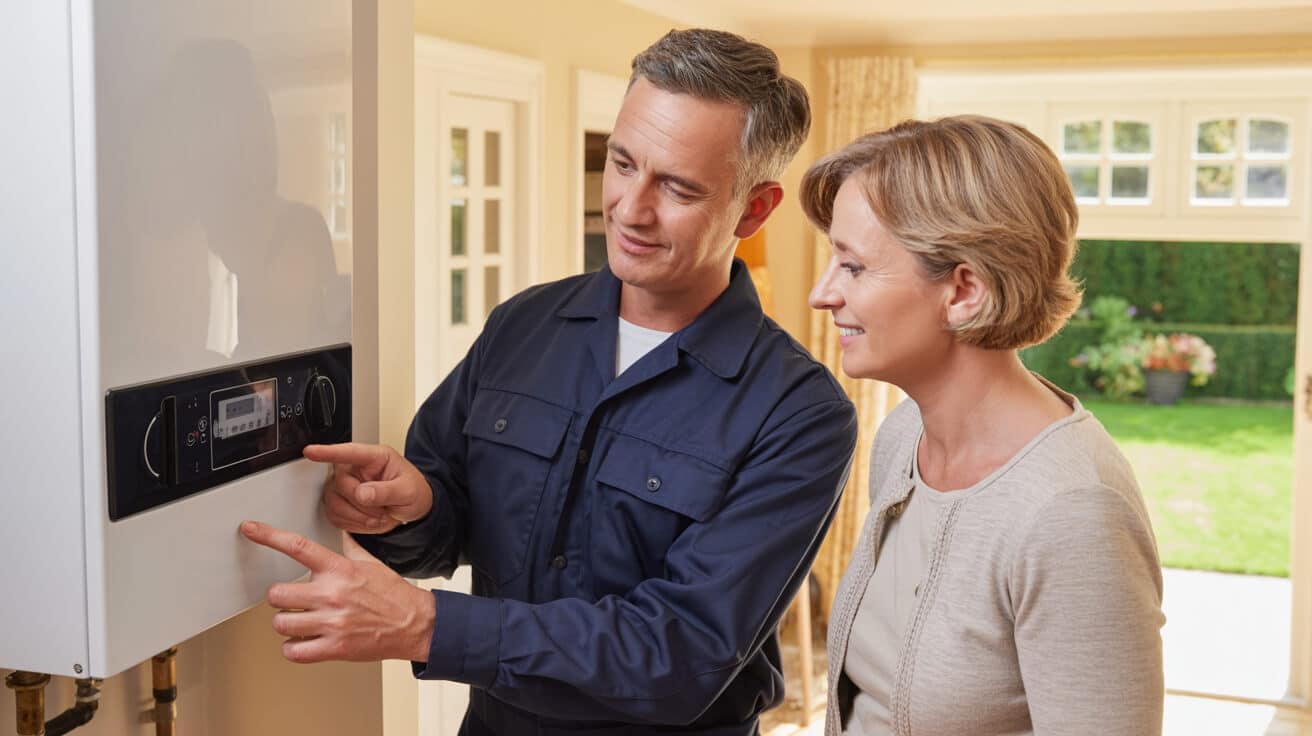
Most UK property owners know Section 11 of the Landlord and Tenant Act 1985: it requires landlords to keep installations for “the supply of water, gas, electricity, sanitation and heating” in repair and working order. But that’s just the start. The Homes (fitness for human habitation) Act 2018 spells out the need for every let property to remain “free of category 1 hazards” (including excess cold). It’s not enough for a boiler simply to switch on; the law demands that indoor spaces reach and maintain healthy winter temperatures (typically 18°C for bedrooms, 21°C for living rooms)—not for a brief spike, but consistently and affordably.
Here’s how those legal duties translate on the ground:
- Heating failures and underperformance (e.g. rooms that never get warm, unreliable hot water) require *genuine repairs*—not temporary electric heaters or “wait it out” responses.
- Landlords must act *quickly*; “reasonable time” is measured by urgency, weather, and any tenant vulnerabilities (young children, elderly, or people with health needs).
- Authorities (environmental health teams, housing officers) can impose improvement notices, administer fines, or step in directly to deliver works—charging back landlords where needed.
Tenancy law quietly demands efficiency; delay means exposure to financial and reputational penalties.
What’s Changed Post-2020?
The introduction of Minimum Energy Efficiency Standards (MEES) and updated EPC law means that landlords must go beyond temporary fixes. Failure to act is simply not a viable option.
If you’re a landlord, agent, or property manager, embrace documentation—not delay: always log complaints, send acknowledgments in writing, and coordinate repairs with certified professionals.
How Do EPCs and MEES Give Tenants a Legal Hand in Efficiency?

Tenants don’t just have the right to “working” heating—they can demand standards that protect both comfort and cost. The EPC (Energy Performance Certificate) and MEES rules, since April 2020, have teeth:
- It’s illegal to let or renew a tenancy on any property with an EPC rating below E (unless registered as exempt): .
- Landlords must fund *all* improvements to reach the minimum (E or above), including insulation, modern boilers, and smart controls—out of their own pocket, not via service charges or rent hikes.
- Fines for non-compliance run up to £5,000 per property.
letting agents and landlords must provide a valid, current EPC at the start of any tenancy. Expired or missing certificates aren’t just sloppy—they actively breach contract law and can void insurance.
Your EPC is more than a nice-to-have: it’s a shield against unfair heating costs and landlord neglect.
Tenants: if the heating costs spiral or comfort falls short, start by demanding your EPC and scrutinising its recommendations. If your property sits below standard or no certificate is supplied, you have immediate grounds to escalate the matter.
Who’s Policing This—and What Happens If There’s a Breach?
- Local councils check EPC compliance and respond to tenant complaints with legal authority.
- Offenders are tracked and named, with non-compliant properties flagged for enforcement and loss of letting rights.
The rules work both ways: tenants must report problems and cooperate with reasonable works scheduling, while landlords must meet the efficiency bar—every time, no exceptions or workaround.
Repairs, Upgrades, and Grey Areas—Where Do Tenant Demands Stand?
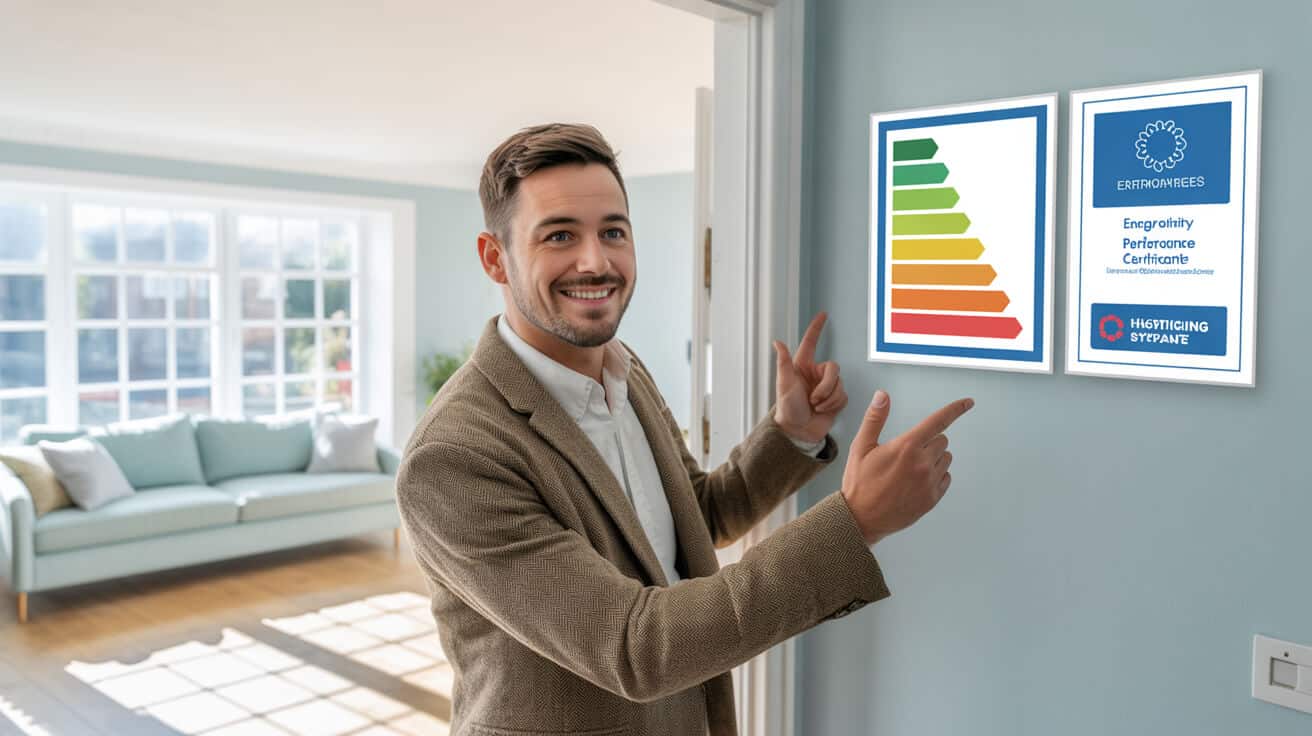
The gap between “repair” and “upgrade” is where most disputes surface. When does a slow old boiler cross the line from acceptable legacy kit to actionable inefficiency? The answer depends on legal definitions and technical standards.
- Genuine Repairs: Breakdown, leaks, or loss of function? The landlord must restore full service, at no tenant cost.
- Mandatory Efficiency Upgrades: If efficiency (band) is below EPC ‘E’ and not exempt, the landlord must pay for all required enhancements—this may mean new boilers, draught-proofing, or control upgrades.
- Tenant-Initiated Improvements: Tenants can propose further upgrades (like fitting smart thermostats or A-rated boilers using personal funds or grant aid). Landlords can only refuse on compliance, warranty, or regulatory grounds—not mere preference.
Any system touching gas, heating, unvented cylinders, or water supply must only be serviced by certified, qualified engineers—Gas Safe, G3, WRAS, or else. Dodgy upgrades by unqualified personnel risk property insurance, tenant safety, and future sale value.
You’re not stuck with that clunky tank or prehistoric thermostat—efficiency is a right, not a privilege.
Repairs are a right: upgrades are now a conversation tenants are winning when they prepare their case well.
How Can Tenants Trigger Upgrades—And What Documentation Wins Approval?
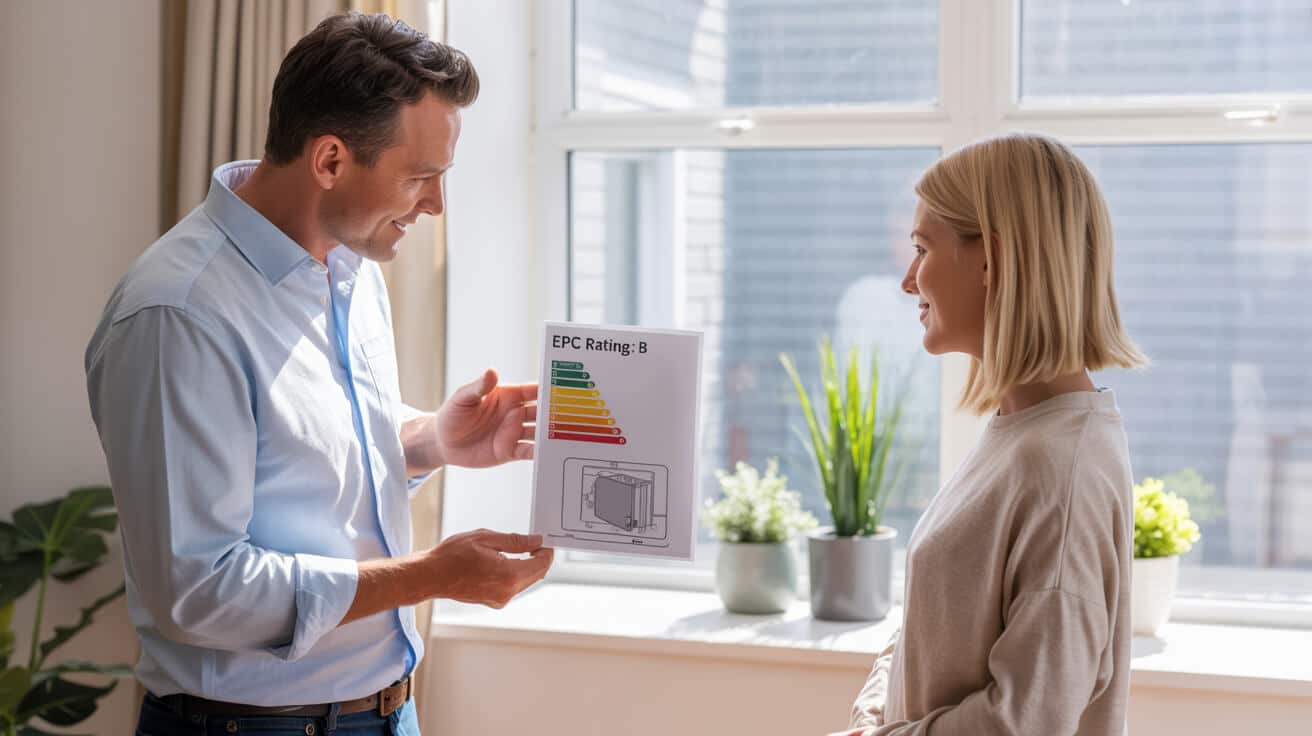
For a tenant, getting an efficiency boost delivered (especially with third-party funding or personal capital) means assembling a bulletproof case:
Stepwise Route for Tenants:
- Name it: Specify the improvement—model of boiler, insulation depth, or control technology.
- Supply credentials: Provide installer proof—Gas Safe numbers, WRAS approval, G3 certification if unvented cylinders are involved.
- Attach funding: Include evidence that all costs—labour, parts, and redecoration—will not fall to the landlord.
- Link to compliance: Reference the relevant EPC deficit, MEES rule, or unresolved repair ticket.
- Guarantee restoration: Offer written commitment to reinstate décor or rectify any knock-on effects.
Once formally submitted, landlords must reply within a reasonable window (typically 7-14 days). Flat refusal? They are required to give a written, regulation-based reason—not silence or a casual no.
Tip: Keep every scrap of correspondence. Emails, completion certificates, before-and-after photo logs; these speed up council intervention if needed.
Tenants holding the receipts, credentials, and notices win nearly every dispute—councils and tribunals sort paperwork, not promises.
Who Pays for Energy-Efficient Projects—And How Are Disputes Avoided?

The financial split is straightforward:
- Landlords: pay for all EPC and MEES-mandated improvements, repairs, and safety fixes.
- Tenants: can choose to fund optional upgrades (as long as works add value and meet compliance), but cannot be levied or surcharged for required repairs or legal upgrades mandated by law.
Installers must always be certified—any works without Gas Safe, G3, or WRAS paperwork fail immediately and are likely to be uninsured.
Minimising Disputes: Documentation and Role Clarity
A simple checklist:
- Certified engineer? If not, start again.
- Has the landlord signed off? Keep this in writing.
- Are all costs (incl. redecoration, warranties, certificates) clearly assigned in the proposal?
- Is the work directly tied to a legal compliance driver (EPC, MEES, repair notice)?
If these boxes are ticked, disputes are rare. Without them, the odds of drawn-out wrangling rise sharply.
What Should Tenants (and Agents) Do When Landlords Resist or Stall?
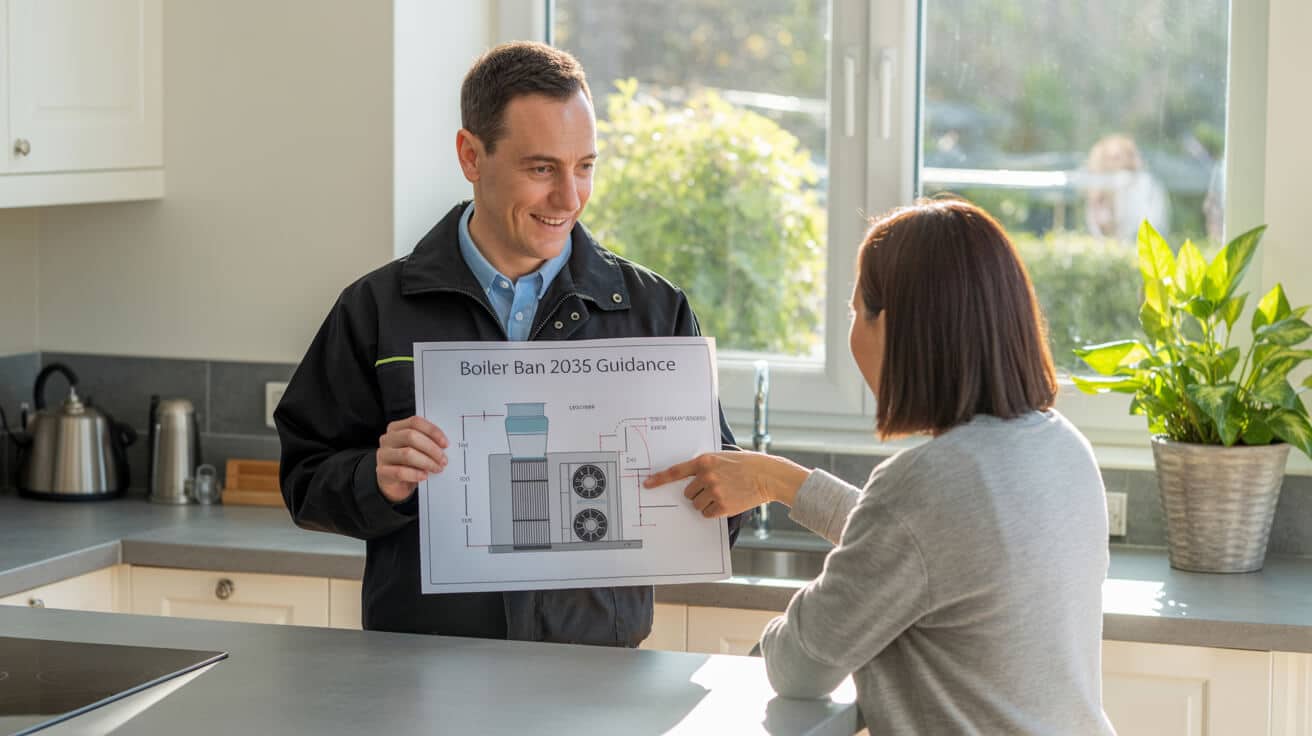
Stubborn landlords still exist, but legislation and council support vastly favour well-organised tenants.
If faced with delay or refusal:
1. Keep a meticulous log (emails, calls, job tickets, photographs).
2. Send a dated, formal request with explicit deadlines—e.g., 7 days for a reply or 72 hours for urgent winter heating loss.
3. Escalate to the local authority—Environmental Health and Housing Enforcement teams have the power to compel works, fine landlords, and appoint contractors if needed.
Evidence and reason win—the louder the silence or excuse, the quicker the council sides with a prepared tenant.
The onus is now on proven action. No one—agent, landlord, or property manager—can safely gamble with heat or energy compliance without inviting penalty and public complaint.
What Does Top-Tier, Energy-Efficient Compliance Look Like in Practice?
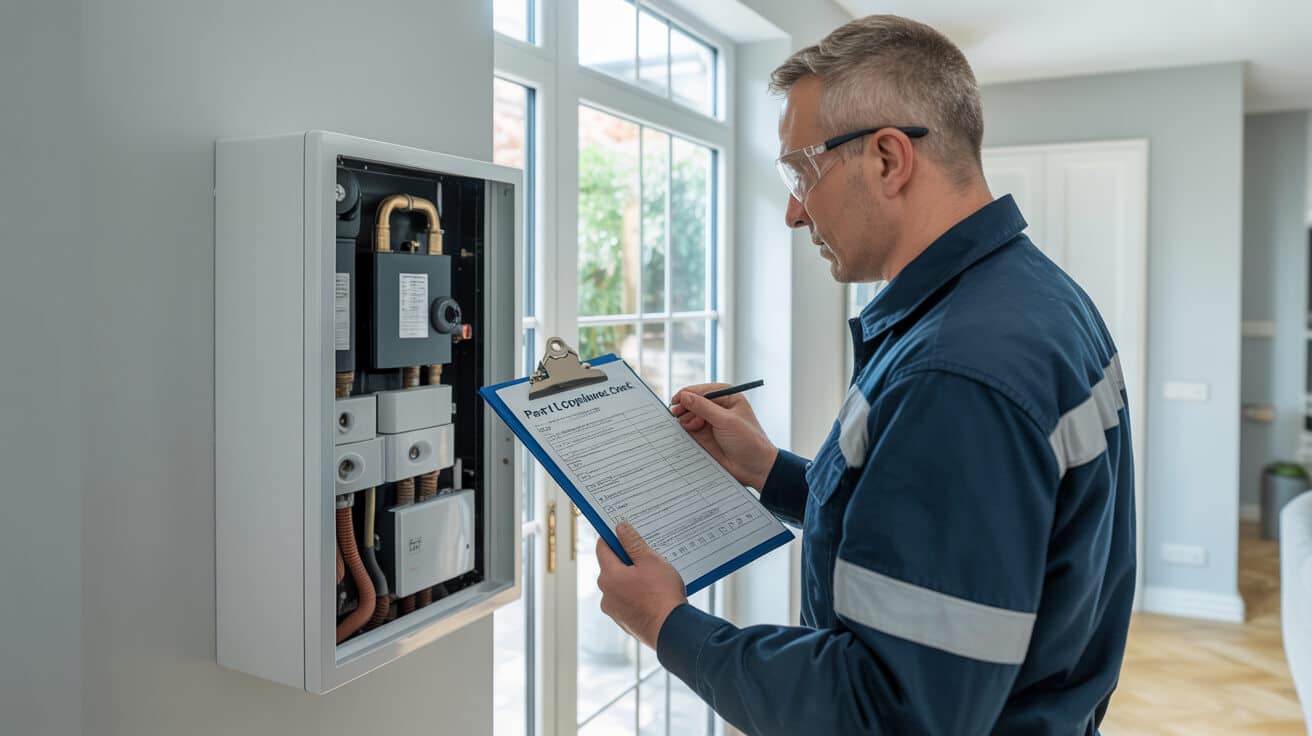
It’s not about ticking boxes for a future inspection, but delivering real comfort and control:
- *New or recently serviced Condensing Boilers*, or heat pumps (where appropriate), sized for property needs.
- *Thermostatic controls* (TRVs) on every radiator, with smart thermostats allowing daily scheduling and zone logic.
- *Full system insulation*: lagged pipes, properly draught-proofed windows and doors, upgraded tank jackets, and secondary return loops in large buildings.
- *Complete certificates*: Gas Safe for any heating, WRAS for fitting compliance, G3 for unvented cylinders—presented and logged for every project.
- *User training*: tenants shown exactly how to use controls, safeties, and access documentation.
True compliance is invisible—no cold rooms, no sky-high bills, no “mystery sounds,” no need to “just get used to it.”
Remember: Poor workmanship or expired certificates put everyone at risk; it’s not just a box-ticking exercise, but a duty of care.
Why Trust Plumbers 4U With Heating, Efficiency, and Compliance Upgrades?
Property care is personal. For Plumbers 4U, every engineer’s standard is the WRAS, G3, and Gas Safe badge on their chest—no job gets closed without matching (and often exceeding) compliance. Here’s what put us ahead of a crowded field:
- System-level surveys: as the house standard: we check for root causes, not just surface faults. If a problem seems persistent or unclear, we look deeper before quoting for a “fix.”
- Every repair and upgrade includes certificates and before-and-after logs.: We don’t “ghost” on paperwork or hide results in cloud portals.
- Quotes and timetables are written, not verbal.: You know what’s happening next, every time.
- Relationship management: we coordinate three-way conversations with tenants, landlords, and council teams if upgrades need escalation, funding, or inspection.
- All engineers fully certified: Gas Safe, G3, WRAS, WaterSafe. There’s no hidden apprentice or “have-a-go” staff.
- Aftercare is factored in: we train you on controls, programme your smart stat, and offer reminders for annual service or warranty triggers.
If you want “job done right first time, with zero comeback,” tap Plumbers 4U. We treat every call—tenant, agent, or landlord—with the urgency, rigour, and background knowledge it deserves.
Heating Upgrades That Deliver Comfort—And Confidence—in Every Room
Warmth and efficiency are no longer wish-list bonuses—they’re baseline requirements. When you book with Plumbers 4U, you secure not only modern comfort but the peace of knowing every step was legal, properly certified, and future-ready.
Every instal, repair, or full upgrade uses WRAS-approved parts, G3 and Gas Safe engineers, and is planned to meet—even exceed—EPC and MEES standards. We photograph, document, and walk you through your new setup before job sign-off.
Ready to move from cold corners and endless compliance worries to stable warmth, clear paperwork, and pride in your property?
Secure your next heating upgrade or compliance inspection now with Plumbers 4U—where comfort, care, and reliable certification all come as standard.
Frequently Asked Questions
What responsibilities do landlords have for proving heating efficiency, regardless of system age or perceived working order?
You can’t just point to a boiler and call it compliant—landlords today must provide accessible, up-to-date evidence that heating systems meet or exceed the MEES (Minimum energy efficiency Standard) for every let, with an EPC band E or above as the absolute minimum under current UK law.
Councils aren’t satisfied by “it works” if fuel bills spike, radiators stall at 17°C, or insulation can’t hold the warmth. When performance slips or documentation can’t be produced within a week, local authorities have the power to halt new tenancies, mandate costly upgrades, or fine landlords by up to £5,000 per breach. A missed compliance check isn’t just an administrative blip: it can set off a chain reaction—rent repayment demands, insurance problems, or a forced hold on future lettings.
Efficiency isn’t just about warmth—it’s about trust, resale value, and bulletproof legal standing in an audit-prone market.
Essential compliance expectations
- Valid EPC rating for every tenancy: No valid EPC, no let. Even existing tenants can contest status if the rating drops with upgrades, insulation gaps, or system age.
- Annual documentation refresher: Each new tenancy, renewal, or audit window can trigger a council request for current Gas Safe, G3 (where relevant), and EPC paperwork.
- Risk management for portfolios: Owners with two or more lets risk losing insurance or mortgage advantages if one property fails a spot check.
How compliance impacts day-to-day letting
It pays to check paperwork is always ahead of the game. With every upgrade or system tweak, documentation should be refreshed and stored in a digital log easily supplied to agents, tenants, or audit teams. A compliance partnership with Plumbers 4U means WRAS-approved installations and system reviews, so you avoid surprise fines or tenancy disruption—and let with real confidence.
Which actions help tenants overcome cold, expensive, or inefficient heating—beyond minimum safety?
If you’re cold, energy-hammered, or staring at an EPC below “E,” you have legal tools and fast, practical steps to enforce better heating, more insulation, or smarter controls—at your landlord’s expense, not yours.
Energy regulations now back not just safety, but affordability and comfort as enforceable rights. When a system falls short—cold spots, persistent high bills, or unreliable radiators—a well-informed, documented request can accelerate real upgrades. Grants like ECO4 and BUS can fully cover costs for new high-efficiency boilers, insulation, or digital smart stats, sidestepping landlord reluctance over price.
Modern legislation is on the tenant’s side—efficient heating is a legal expectation, not a favour.
Tenant leverage steps
- Request the full EPC report, Gas Safe, and (if applicable) G3 certification.:
- Submit an upgrade proposal: Detail where comfort fails: slow heating, cold rooms, draughts, or repeated inefficiency complaints, and specify the desired improvement.
- Cite licencing or grant eligibility: Plumbers 4U can provide you with a grant-backed quotation tailored for your dwelling, signed off for MEES compliance.
- Set clear timelines in communication: Fourteen days for a first reply; escalate if you receive silence or refusal without legal cause.
- Store every message, invoice, and inspection photo: These form the evidence chain if you need to escalate to council or tribunal.
If your request gets stonewalled, approach your council’s environmental health team. Councils increasingly lean towards tenants when requests are clear, funded, and thoroughly documented. Plumbers 4U offers support packs for tenants including template letters, guidance, and a compliance assessment so you’re never stuck shivering again.
How do ECO4 and the Boiler Upgrade Scheme make legal heating upgrades and compliance accessible to both tenants and landlords?
Funding schemes like ECO4 and BUS are fundamentally changing the conversation—replacing rows over cost with options for immediate, grant-backed upgrades. Both tenants and landlords can benefit, often with zero up-front spend for the landlord.
ECO4 targets heat loss and fuel poverty in private lets, unlocking new boilers, insulation, and smart controls. BUS focuses on net-zero readiness by financing heat pump and biomass installations. Both programmes mean it’s never been easier to meet—and exceed—the EPC “E” mandate without sacrificing portfolio returns or tenant happiness.
When a third party pays for the upgrade and compliance is a guarantee, everyone wins—comfort isn’t a trade-off for legal peace of mind.
Grant schemes at a glance
| Funding Scheme | Who qualifies | What’s included |
|---|---|---|
| ECO4 | Tenants, landlords, low EPC homes | Efficient boilers, loft/cavity insulation |
| BUS | Landlords, homeowners (England/Wales) | Heat pumps, biomass boilers, zone control |
- Fast-tracked upgrades: Plumbers 4U manages all grant paperwork, schedules site assessments, and connects eligible homes with accredited, standards-driven installers—no endless forms or council phone tag.
- Integrated compliance: Every improvement includes WRAS, Gas Safe, and EPC documentation tailored for audit defence.
Grant cycles operate on limited annual windows. A phone call today lines up eligibility screening, installer visits, and all documentation—guaranteeing both warmth and legal standing for this and every future tenancy.
What’s the most effective process for requesting and tracking a heating efficiency upgrade in rented accommodation?
Results hinge on specifics. A successful heating upgrade always starts with a clear, grant-linked, and legally referenced letter or email—one that no diligent landlord or council can ignore. Vague asks get parked; survey-ready requests with supporting proof and installer details move to the front of the queue.
Precision beats procrastination—back up each request with documentation, deadlines, and clear benefit for all parties.
Stepwise upgrade pathway
- Check the current EPC: If the rating is below “E,” the law supports you.
- Write a grant-backed request: Identify the problem (“radiators can’t hold 18°C”), name the improvement (“A-rated combi swap, ECO4-funded, Plumbers 4U WRAS/Gas Safe instal”), and add all paperwork (grant approval, installer credentials, technical reports).
- Offer sensible access and minor decoration consent: Many landlords act fast if costs and inconvenience are clarified upfront.
- Set a return deadline and keep a log: Fourteen days is standard. Silence equals escalation.
- Escalate in writing: Councils are mandated to enforce grant-backed or MEES-mandated requests.
Editable tenant template
Dear Landlord, consistent with the Minimum Energy Efficiency Standard, I am requesting written consent for a fully grant-funded heating upgrade conducted by Plumbers 4U, WRAS and Gas Safe certified. This work secures legal compliance and brings energy bills under control at no direct cost.
Keep all correspondence, appointment confirmations, and photographic evidence—these unlock council intervention or repair mandates if required.
When can tenants legally demand upgrades, and what legitimate reasons allow landlords to refuse?
Tenants aren’t merely “asking” for upgrades. UK law empowers tenants to request—and sometimes force—improvements when heating systems underperform or fail to meet MEES standards. Once a request is valid, well-documented, and grant-backed, councils will rarely accept a straight refusal unless there’s a genuine legal or technical bar.
Denials based on cost, access, or intent to sell no longer stand up in enforcement cases—auditors expect solutions, not excuses.
Mandates triggering upgrade action
- EPC below E or room heat can’t hold 18°C+ reliably: Triggers direct council involvement; owners face rent repayment or enforced works.
- Grant-backed instal requests ignored or denied: Escalation can mean third-party works billed to future rent payments or landlord fines.
- Patterned refusal or compliance breaches: Repeated failure can result in letting bans, insurance penalty clauses, or funding hurdles for further properties.
Allowable landlord defences (must be documented)
- Heritage and listed status: Only if upgrades threaten building integrity, and with formal proof provided.
- Asset value impairment >5%: Requires accredited third-party valuation and written report.
- Proven technical incompatibility: Must show documented inability to integrate proposed upgrades within site constraints.
- No available grant or funding batch: Requires written evidence of grant ineligibility or withdrawal.
Plumbers 4U offers mediation backed by technical analysis, legal citations, and council-validated procedures—protecting all parties from protracted disputes.
What unique benefits do Plumbers 4U upgrade services deliver beyond just legal compliance or a minimum EPC?
Plumbers 4U is more than a box-ticker for MEES and EPC—it’s your end-to-end, record-ready partner for heating, documentation, and stress-free letting. Every service is engineered to pass government audit, council inspection, and the reality test of winter utility bills.
Our technicians run diagnostic checks, survey every radiator, and verify insulation integrity before quoting a fix. Every instal and repair is handled by WRAS-approved, Gas Safe, and G3-certified engineers—so you get robust technical quality, not just a quick “pass.”
The value isn’t in paperwork—it’s in bulletproof comfort, efficiency, and always-ready documentation.
Above-and-beyond service differentiators
- Root-cause troubleshooting: We spot subtle flow or control problems hidden by age—not just obvious cold spots.
- Digital and hard-copy records: Certificates, compliance packs, and photographic before/after logs available to every stakeholder—no more missing paperwork at audit time.
- After-instal care: Remote support, maintenance reminders, and live assistance ensure upgrades last and compliance never lapses unnoticed.
- Grant and council navigation: We coordinate every step, making sure upgrades are eligible, funded, and interruption-free for both tenants and landlords.
Plumbers 4U closes every job with evidence, aftercare, and performance guarantees designed for landlord peace of mind, tenant comfort, and future sale readiness. Connect today and let your reputation, tenant satisfaction, and legal status stand taller than ever before.

